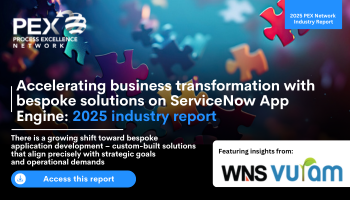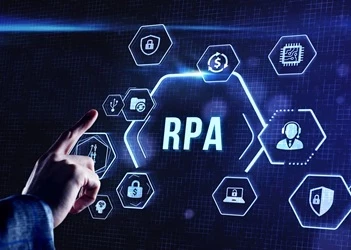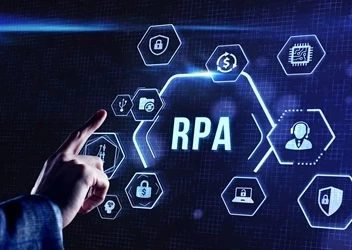Gartner releases Magic Quadrant for robotic process automation (RPA)
The RPA market is at a pivotal inflection point as emerging AI technology reshapes automation
Add bookmark
Gartner released a new Magic Quadrant for robotic process automation (RPA), evaluating 13 enterprise RPA vendors to help buyers make the best choice for their enterprise’s task automation needs.
RPA continues to be a core software market for improving operational efficiency with tactical automation, the analyst giant stated.
Gartner’s Magic Quadrants are tools that provides a graphical competitive positioning of technology providers to enable investment decisions. They use a uniform set of evaluation criteria to categorize four types of technology providers in any given field: Leaders, Visionaries, Niche Players and Challengers.
Join the PEX Network community

Don't miss any news, updates or insider tips from PEX Network by getting them delivered to your inbox. Sign up to our newsletter and join our community of experts.
Learn MoreWhat is RPA?
RPA is a technology that involve the use of software robots (or ‘bots’) to automate repetitive, rule-based tasks within business processes. It has been a common and widely used component of process excellence for several years.
Gartner defines RPA as software that automates tasks within business and IT processes using software scripts that emulate human interaction with the application UI. RPA enables a manual task to be recorded or programmed into a software script, which users can develop through programming or by using the RPA platform’s low-code and no-code GUIs. This script can then be deployed and executed into different runtimes.
The RPA market is at a pivotal point
“The RPA market is at a pivotal inflection point,” wrote Arthur Villa, senior director, analyst at Gartner. “In 2024, the market generated $3.8 billion in revenue representing a healthy 18 percent increase YoY. However, [artificial intelligence] AI innovations have introduced alternatives to traditional deterministic RPA along with the rise of enterprise automation platforms such as business orchestration and automation technologies (BOAT).”
Which RPA vendors feature in Gartner’s Magic Quadrant?
The 13 RPA vendors included in Gartner’s Magic Quadrant are:
- Appian
- Automation Anywhere
- EvoluteIQ
- IBM
- Laiye
- Microsoft
- Pegasystems
- Salesforce
- Samsung SDS
- SAP
- ServiceNow
- SS&C Blue Prism
- UiPath
Join us at All Access: BPM Business Process Management 2025 to explore how to identify and improve key processes!
Global RPA market expected to be worth $46.66 billion by 2034
The global RPA market is projected to reach a value of $46.66 billion by 2034, growing at a CAGR of 23.13 percent, according to separate data from The Research Insights. The RPA market is being driven by businesses’ need for improved operational efficiency and cost savings.
The combination of AI and machine learning capabilities with digital transformation initiatives is leading to faster market growth for RPA platforms, The Research Insights stated. “RPA systems improve operational performance in financial services, healthcare institutions, retail businesses and manufacturing companies through automation of customer service functions, data management tasks, compliance documentation work and inventory management systems.”
However, the scarcity of experienced professionals who can develop and manage RPA systems stands as a substantial barrier to market expansion, preventing adoption in small businesses and organizations that have not yet matured digitally.
Accelerating business transformation with bespoke solutions on ServiceNow App Engine

Today, off-the-shelf software solutions offer diverse features that enable vast opportunities to implement and maintain business transformation. However, in some circumstances, capabilities lack the flexibility and specificity required to address the unique challenges and workflows of individual organizations. As a result, there is a growing shift toward bespoke application development – custom-built solutions that align precisely with strategic goals and operational demands.
Download this report to explore how enterprises can harness the power of custom applications to drive meaningful transformation. With the growing adoption of low-code platforms like ServiceNow App Engine, organizations are building custom applications faster and with greater control. By empowering both IT professionals and citizen developers to build tailored solutions, organizations can significantly reduce time to value while maintaining control over quality and compliance.
Download Now












